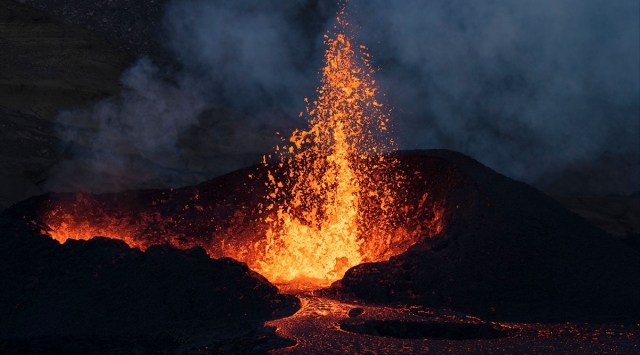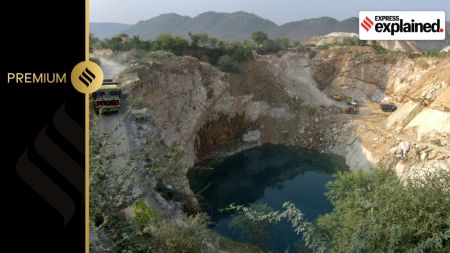- India
- International
Volcanic eruptions could be ruining our ability to predict climate change
Volcanic eruptions could be affecting our ability to accurately predict changes in rainfall and the chances of severe weather events in the near-term, according to a new study.
 It is important that we make accurate predictions for those sea surface temperatures since it can ultimately affect the lives of farmers and other communities who need to plan ahead for years. (Illustrative image credit: Gylfi on Pixabay)
It is important that we make accurate predictions for those sea surface temperatures since it can ultimately affect the lives of farmers and other communities who need to plan ahead for years. (Illustrative image credit: Gylfi on Pixabay) Simulations of volcanic eruptions may be ruining our ability to predict climate change in the near term, suggests a new study.
The study published in the journal Science Advances found that how volcanic eruptions are represented in climate models could be affecting these models’ ability to predict changes in sea surface temperature in the tropical Pacific.
These sea surface temperatures vary over decades and can cause climate impacts across the globe. These temperature changes can cause changes in the rainfall pattern and can also cause severe weather events.
It is important that we make accurate predictions for those sea surface temperatures since it can ultimately affect the lives of farmers and other communities who need to plan ahead for years.
“These decadal variations in sea surface temperatures in the tropical Pacific are linked to climate impacts across the globe, including variations in precipitation and severe weather. Accurate predictions, therefore, could provide community leaders, farmers, water managers, and others with critical climate information that allows them to plan years in advance,” said Xian Wu, leader of the study, in a press statement.

Wu is a post-doctoral researcher at the US National Center for Atmospheric Research. (NCAR)
For the study, the researchers ran two collections of climate simulations. Only one of the collections included the three major volcanic eruptions that happened during the study period. The other did not.
Since it is expected that large volcanic eruptions can have crucial long-term cooling effects on the climate, the researchers expected the simulations with volcanic eruptions to produce more accurate predictions.
But in reality, they found that including volcanic eruptions reduced the model’s ability to predict the climate accurately, at least in the tropical Pacific region. According to NCAR, this area is especially important because of the connection between sea surface temperatures and near-term climate events.
For instance, the simulations with the volcano eruptions predicted a cooling of the sea surface temperatures in the tropical Pacific after the eruptions. But actually, that part of the ocean warmed. This change was predicted by the simulations without volcanic eruptions.
These findings highlight how difficult it is to accurately predict the climate effect of volcanoes. The problem is that scientists just do not have enough observations to predict the large-scale effects of volcanoes. This means that we can’t exactly predict what a volcanic eruption could do to the climate.
For example, even though it is believed that volcanic eruptions can cool the climate, a 2022 NASA climate simulation found that some kinds of volcanoes can have the exact opposite effect by warming the climate and destroying the Ozone layer.
All in all, Wu and her colleagues believe that there needs to be an improved representation of volcanoes in climate change models so that their inclusion does not hamper the ability to predict climate change.
Best of Express
May 22: Latest News
- 01
- 02
- 03
- 04
- 05






































